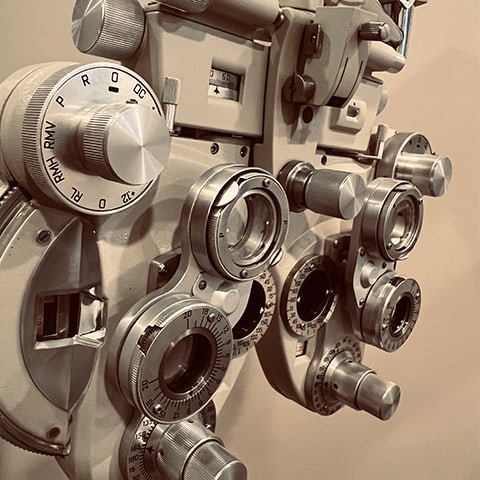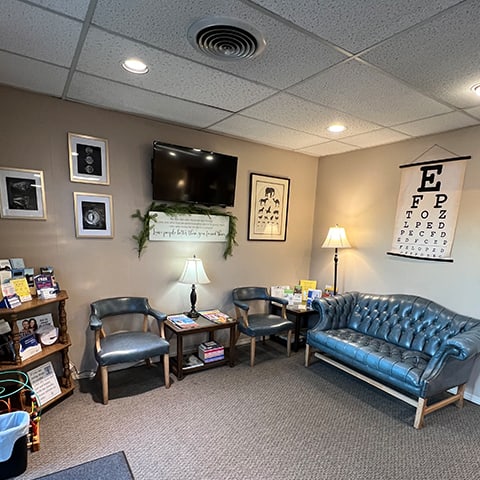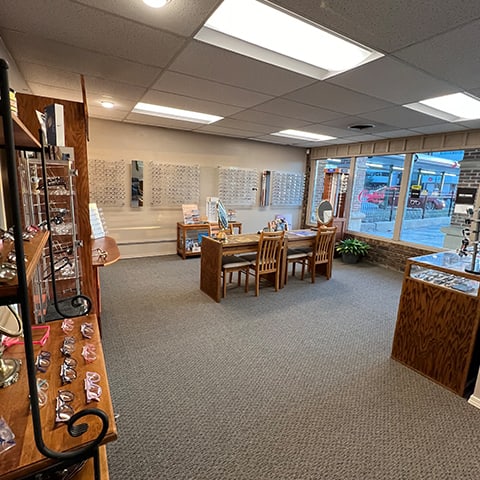Exploring Your Laser Vision Correction Options
If you wear glasses or contact lenses, you’ve probably thought about what life might be like if you didn’t have to. Laser eye surgery can help you wake up in the morning and see your alarm clock clearly.
Everyone considering laser vision correction needs to have a comprehensive eye exam and consultation. We need to take a detailed look at your eyes and understand your health history and lifestyle needs in order to help you achieve a positive outcome.
We’ll also be sure to discuss your expectations for the surgery. Many people experience improved vision after their procedure, but there are certainly people who still need glasses or contact lenses post-surgery. But surgery almost always decreases reliance on corrective lenses.
Start your laser eye surgery journey by booking a consultation today.
Request Appointment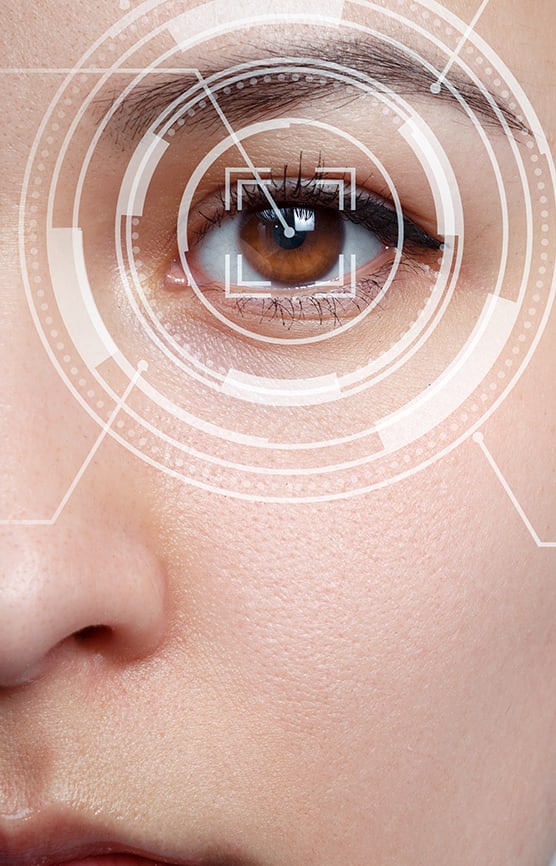
Who Can Benefit From Laser Eye Surgery?
In order to be considered a candidate for laser eye surgery, your eyes must be in good health. Infections, severe dry eye, or recent trauma may mean you’ll need to delay the procedure.
Here are a few other considerations for surgery:
- You must be 18 years of age or older.
- Your refractive error must not be too great.
- Your prescription must be stable.
To find out whether you’re a candidate for laser vision correction, book an appointment today!
Request AppointmentWhat Is Laser Eye Surgery?
Laser eye surgery is a group of procedures—all just a little bit different—that use a laser to correct refractive errors in your vision.
Technological advances have made several types of laser vision correction possible, but 3 of the most common types are LASIK, PRK, and SMILE.
LASIK
Laser-assisted in situ keratomileusis (LASIK) involves a surgeon cutting a flap in your cornea. This flap is then folded back, and the remaining layers are reshaped with a precision laser.
Once the reshaping is complete, the surgeon will return the flap to its original position, and the cornea will repair itself. Post-surgery surveys report extremely high levels of satisfaction with LASIK.
PRK
Photorefractive keratectomy (PRK) involves the surgeon removing the top layer of the cornea altogether, then reshaping the remaining layers.
SMILE
Small incision lenticule extraction (SMILE) is a minimally invasive surgical procedure that uses a femtosecond laser—a short-pulsed, near-infrared laser—to create a small lens-shaped disc (lenticule) in the cornea.
The tissue is removed through an incision less than 4 millimeters wide. The smaller incision can promote faster recovery and may benefit patients with higher prescriptions or dry eye concern
Is Laser Surgery Right for Me?
As with any surgical procedure, there are risks associated with laser eye surgery. We can help you understand the risks and will support you in making an informed decision.
Book your appointment for a laser eye surgery consultation today.
Request AppointmentCome Visit Us
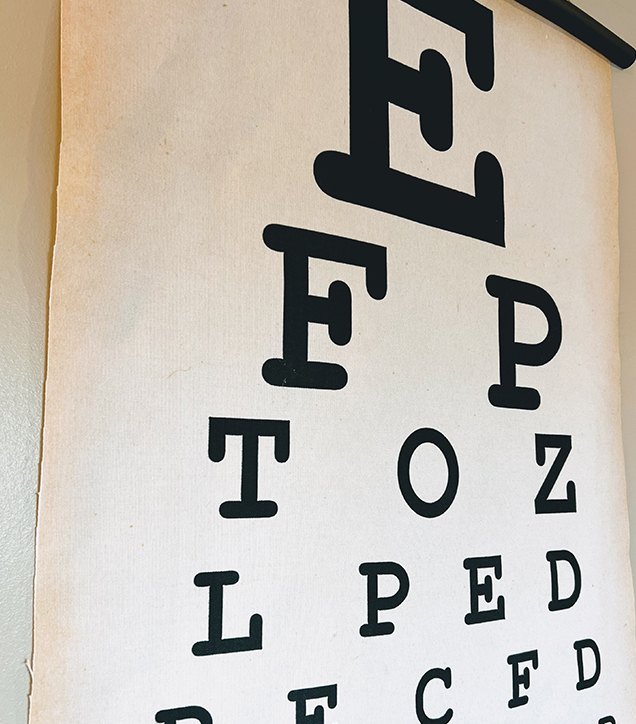
Our Address
- 5910 S Lewis
- Tulsa, OK 74105
Contact Information
- Phone: 918-745-9700
- Fax: 918-743-8102
- Email: staff@adudleyod.com
Hours of Operation
- Monday: 8:30 AM – 5:30 PM
- Tuesday: 8:30 AM – 6:00 PM
- Wednesday: 8:30 AM – 5:30 PM
- Thursday: 8:30 AM – 5:30 PM
- Friday: 8:30 AM – 2:00 PM
- Saturday: Closed
- Sunday: Closed
Insurance & Payment Information
Dr. Dudley’s Primary Eye Care believes in providing the best value for you and your family. We have products and pricing that aims to accommodate all budgets and our office participates in most insurance programs. For patients who have little or no vision insurance coverage, flexible payment programs may be arranged. To learn more about our payment options, please call our office directly.
Vision Insurance
We accept several forms of vision insurance including:
- EyeMed
- Superior Vision
- Primary Vision Care Services (PVCS)
- Vision Care Direct
- Humana Vision
- Vision Service Plan (VSP)
- Care Credit
- And More
We are also provider for Medicare, several Blue Cross Blue Shield plans, BlueLincs HMO and United Health Care
*Please call our office with any insurance inquiries!
Flexible Spending & Savings Plans
- Flexible Spending Plans
- Health Savings Accounts (HSA)
- Medical Savings Accounts (MSA)
- Cafeteria Plans
All of the above plans can be used for all your eye care and eyewear needs, including eyeglasses, contact lenses, routine office visits and medical office visits.
Care Credit
The Care Credit card is available to help people pay for health care expenses, often with an introductory period that is interest-free. We accept Care Credit for all of our services. To learn more or apply, visit Care Credit here.
Our Services
Our Brands








Our Google Reviews
Our Blogs
Eye Exams: What to Expect
Eye Health and DiseasesYearly comprehensive eye exams are crucial to detecting changes in your vision and risk of eye-related diseases. We recommend adults have a comprehensive eye exam every year, and children should have an eye exam as early as six months before they start school, and then every 1-2 years. We often get questions about what to […]
Bifocal vs Progressive Lenses
Eye Health and DiseasesFor individuals that need vision correction both near and far, progressive or bifocal lenses are a must-have! As your eyes age and your vision changes, age-related farsightedness or presbyopia may start to affect your vision. What are Bifocal or Progressive Lenses? Progressive and bifocal lenses transition from near to far distance prescription within one lens! […]
6 Common Eye Symptoms and What to Do
Eye Health and DiseasesSuffering from eye discomfort or blurry vision can be scary, especially if it comes on suddenly or is a result of a dramatic event. Below are some of the common eye-related disorders. However, remember that common doesn’t mean it should be ignored. If you are experiencing any of these systems or if you have questions […]
Eye Exams: What to Expect
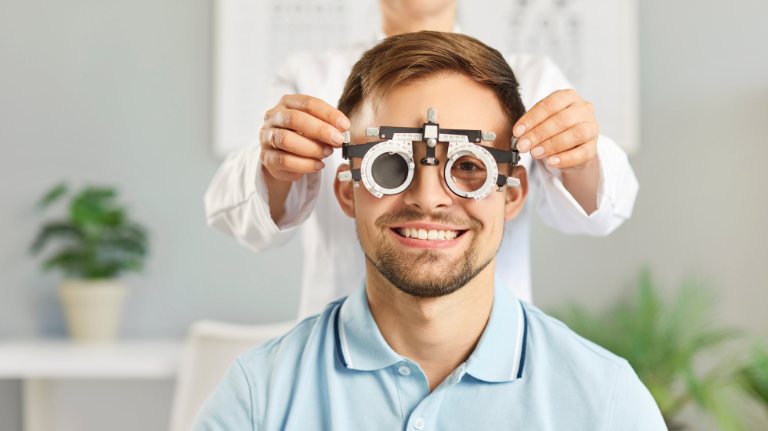
Yearly comprehensive eye exams are crucial to detecting changes in your vision and risk of eye-related diseases. We recommend adults have a comprehensive eye exam every year, and children should have an eye exam as early as six months before they start school, and then every 1-2 years. We often get questions about what to […]
Bifocal vs Progressive Lenses

For individuals that need vision correction both near and far, progressive or bifocal lenses are a must-have! As your eyes age and your vision changes, age-related farsightedness or presbyopia may start to affect your vision. What are Bifocal or Progressive Lenses? Progressive and bifocal lenses transition from near to far distance prescription within one lens! […]
6 Common Eye Symptoms and What to Do

Suffering from eye discomfort or blurry vision can be scary, especially if it comes on suddenly or is a result of a dramatic event. Below are some of the common eye-related disorders. However, remember that common doesn’t mean it should be ignored. If you are experiencing any of these systems or if you have questions […]






